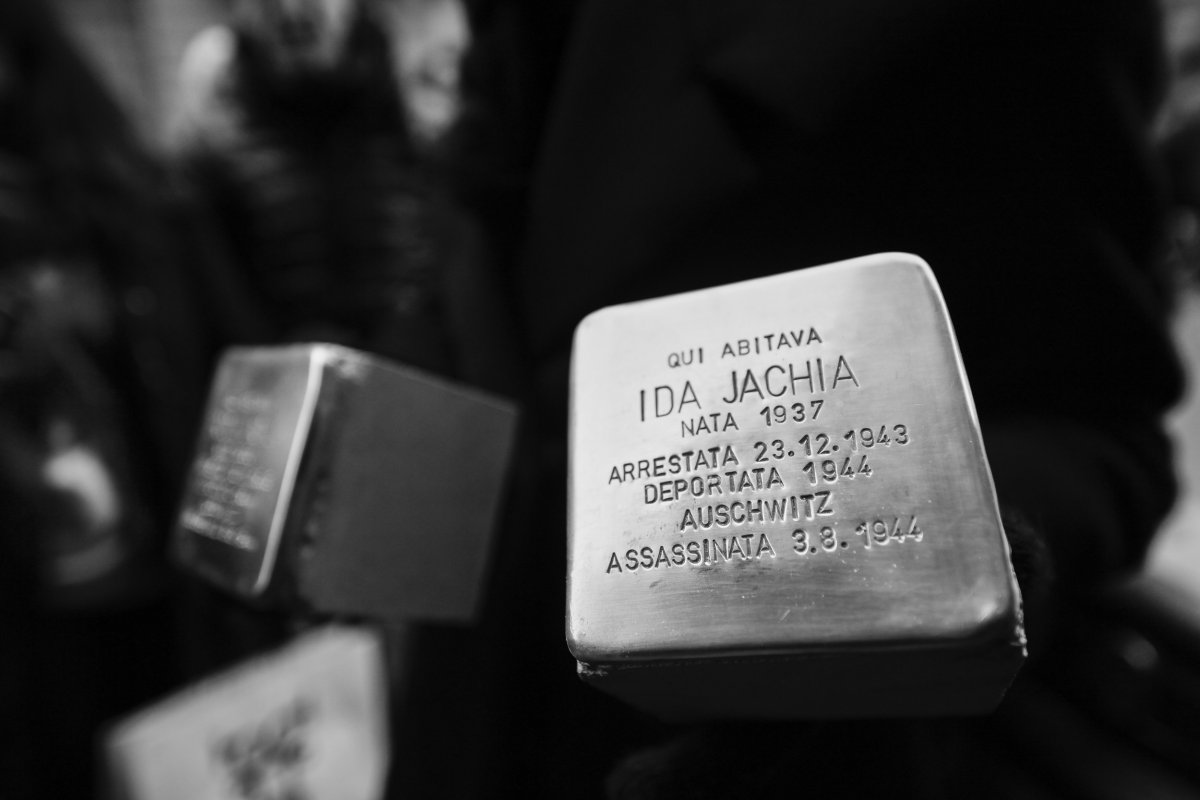In 10 days, we will mark another Holocaust Remembrance Day. Jan. 27 commemorates the liberation of the Auschwitz-Birkenau death camp by Soviet soldiers in 1945, and is likely to pass with few lessons learned, yet again.
The Holocaust, in which 6 million Jews were murdered by Germany's Nazis during World War II, has become, for many, a historical event without relevance to their lives. It is something they will study for a few weeks and forget about as soon as the semester ends. A 2020 survey released by the nonprofit Conference on Jewish Material Claims Against Germany revealed that one in 10 adults under 40 say they have never heard of the Holocaust.
We have become numb to our own harsh reality and dark history.
We've turned even the most atrocious and tangible of events into mere concepts and
philosophies. We have lost the simplest thing of all—the ability to remember and feel empathy, pain, and danger.
Antisemitism has become, like most other things, a topic to be debated and politicized.

But antisemitism is not a theoretical idea like others which are written about in books and abstractly discussed at dinner tables and classrooms across the world.
The horrific manifestations of antisemitism coalesce into quantifiable and tangible facts. Ones that have been forgotten by many despite the memorials, museums, movies, testimony, and evidence that has been painstakingly assembled.
Nobody before, during, or even after the Holocaust, for quite some time, believed that 6 million Jews could have been murdered. While the war was ongoing, The New York Times was unable (or unwilling) to properly report the truth.
That same detachment from reality exists today.
The truth is that General Dwight D. Eisenhower was correct and prescient, when he, upon liberating concentration camps, instructed his soldiers to photograph and document everything precisely because he was concerned about those who might one day deny or doubt what he witnessed.
Yad Vashem—the World Holocaust Remembrance Center in Israel—has done us all an
incredible service, as it has worked to preserve the tangible history of the Holocaust's cruelties as a lesson and a warning.
Others have also stepped up.
For example, Ronald Lauder, president of the World Jewish Congress, and chairman of the Auschwitz-Birkenau Memorial Foundation, recognized the importance of preservation in the 1980s after visiting the Auschwitz-Birkenau Memorial. He made it his mission to ensure that the artifacts and possessions of some of the more than 1 million people who were murdered at Auschwitz survived to be seen by future generations.
Speaking of an exhibition, titled "Auschwitz. Not Long Ago. Not Far Away," in New York, Lauder said, "This exhibit reminds them, and it reminds all of us, where antisemitism ultimately leads."
My rabbi and mentor, Rabbi Arthur Schneier, a Holocaust survivor, and a man who has
paved the way for each of us to stand up in the fight against intolerance of any kind, taught me
an incredibly important lesson from a very young age.
While I attended his synagogue and school, he always stressed the importance of the Holocaust being remembered not only by Jews, but by the international community at large because it contains a warning to the descendants of the victims, as well as to the perpetrators and bystanders.
He has spent his life bringing the world together in its fight against a repeat of the horrors of the Holocaust, including organizing an annual ceremony commemorating Holocaust Remembrance Day with the United Nations secretary-general.
Antisemitism is not just a horrible ideology, as it's been described countless times in recent years. Antisemitism is the extermination of 6 million Jews and a reminder that even things which seem irrational, impossible, and unimaginable can and do happen.
Modern technology offers us a new path forward to attack the growth of antisemitism and Holocaust denial, and to help remind the world of the horror that took place within a human lifetime.
Today, I am launching the Lest People Forget project to connect individuals around the world and to enable them to make, together, a contribution to the preservation of the history of the Holocaust.
At LestPeopleForget.com otherwise unconnected individuals will be able to actively engage in helping to preserve history, share it, and prevent it from ever repeating.
Users may submit their own stories and materials to be shared with the world; they may help by extending the life of the decentralized domain to make sure its content remains long after we're gone; and they can ensure that these documents are stored on their computers and those of others so that they can be learned from and preserved.
I hope that young people, especially, will take it upon themselves to get involved and to lead the way—lest people forget.
Elizabeth Pipko is the founder of the Lest People Forget project.
The views expressed in this article are the writer's own.
Uncommon Knowledge
Newsweek is committed to challenging conventional wisdom and finding connections in the search for common ground.
Newsweek is committed to challenging conventional wisdom and finding connections in the search for common ground.
About the writer
To read how Newsweek uses AI as a newsroom tool, Click here.








